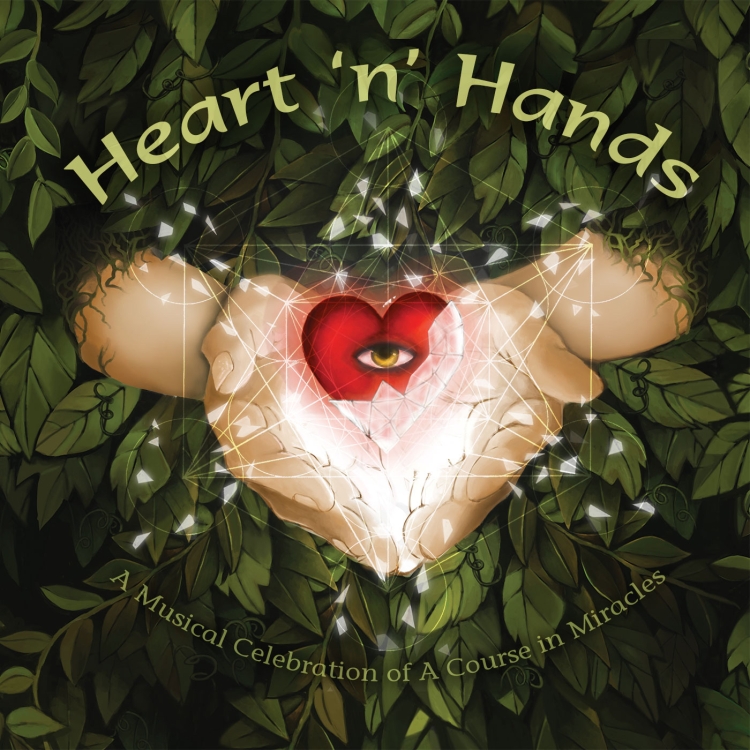ACIM Text Reading for October 22
Manual for Teachers
19. What Is Justice?
Justice is the divine correction for injustice. Injustice is the basis for all the judgments of the world. Justice corrects the interpretations to which injustice gives rise, and cancels them out. Neither justice nor injustice exists in Heaven, for error is impossible and correction meaningless. In this world, however, forgiveness depends on justice, since all attack can only be unjust. Justice is the Holy Spirit’s verdict upon the world. Except in His judgment justice is impossible, for no one in the world is capable of making only just interpretations and laying all injustices aside. If God’s Son were fairly judged, there would be no need for salvation. The thought of separation would have been forever inconceivable.
Justice, like its opposite, is an interpretation. It is, however, the one interpretation that leads to truth. This becomes possible because, while it is not true in itself, justice includes nothing that opposes truth. There is no inherent conflict between justice and truth; one is but the first small step in the direction of the other. The path becomes quite different as one goes along. Nor could all the magnificence, the grandeur of the scene and the enormous opening vistas that rise to meet one as the journey continues, be foretold from the outset. Yet even these, whose splendor reaches indescribable heights as one proceeds, fall short indeed of all that wait when the pathway ceases and time ends with it. But somewhere one must start. Justice is the beginning.
All concepts of your brothers and yourself; all fears of future states and all concerns about the past, stem from injustice. Here is the lens which, held before the body’s eyes, distorts perception and brings witness of the distorted world back to the mind that made the lens and holds it very dear. Selectively and arbitrarily is every concept of the world built up in just this way. “Sins” are perceived and justified by careful selectivity in which all thought of wholeness must be lost. Forgiveness has no place in such a scheme, for not one “sin” but seems forever true.
Salvation is God’s justice. It restores to your awareness the wholeness of the fragments you perceive as broken off and separate. And it is this that overcomes the fear of death. For separate fragments must decay and die, but wholeness is immortal. It remains forever and forever like its Creator, being one with Him. God’s Judgment is His justice. Onto this,–a Judgment wholly lacking in condemnation; an evaluation based entirely on love,–you have projected your injustice, giving God the lens of warped perception through which you look. Now it belongs to Him and not to you. You are afraid of Him, and do not see you hate and fear your Self as enemy.
Pray for God’s justice, and do not confuse His mercy with your own insanity. Perception can make whatever picture the mind desires to see. Remember this. In this lies either Heaven or hell, as you elect. God’s justice points to Heaven just because it is entirely impartial. It accepts all evidence that is brought before it, omitting nothing and assessing nothing as separate and apart from all the rest. From this one standpoint does it judge, and this alone. Here all attack and condemnation becomes meaningless and indefensible. Perception rests, the mind is still, and light returns again. Vision is now restored. What had been lost has now been found. The peace of God descends on all the world, and we can see. And we can see!
***
ACIM Workbook Lesson for October 22
Lesson 293
All fear is past and only love is here.
All fear is past, because its source is gone, and all its thoughts gone with it. Love remains the only present state, whose Source is here forever and forever. Can the world seem bright and clear and safe and welcoming, with all my past mistakes oppressing it, and showing me distorted forms of fear? Yet in the present love is obvious, and its effects apparent. All the world shines in reflection of its holy light, and I perceive a world forgiven at last.
Father, let not Your holy world escape my sight today. Nor let my ears be deaf to all the hymns of gratitude the world is singing underneath the sounds of fear. There is a real world which the present holds safe from all past mistakes. And I would see only this world before my eyes today.
***
ACIM Q & A for Today
Q #411: In A Course in Miracles, Jesus says, “You can not make the body the Holy Spirit’s temple, and it will never be the seat of love. It is the home of the idolater, and of love’s condemnation. For here is love made fearful and hope abandoned” (T.20.VI.6:1,2,3). And previous to that he states of idols, specifically referring to the body that “The body is the ego’s chosen weapon for seeking power through relationships” (T.20.VI.4:3). The other day I saw a woman who was pregnant and it made me think of birth, pregnancy, the separation, and what purpose birth serves. Is not the birthing of another body extending the thought of separation since the body is “the ego’s chosen weapon for seeking power?” Aren’t we just making the thoughts of separation greater and the illusion/dream more so through the birth of a body?
A: It would seem so; but in the passages you have cited, Jesus is speaking to us on what we refer to as Level One: the contrast between reality and illusion. On that level, the body symbolizes only the ego’s murderous nature and its ongoing intention to perpetuate separation and conflict; and therefore in and of itself, the body can never be anything holy or loving. But on another level (Level Two), speaking to us within the framework of what we think is real, Jesus teaches us that “love does not condemn it [the body] and can use it lovingly, respecting what the Son of God has made and using it to save him from illusions” (T.18.VI.4:8). His gentle means of helping us is to teach us how to use what we regard as real (even though he knows it is not real and was made to attack truth) to undo the sense of separation we feel within ourselves and in relation to everyone else. He thus tells us to regard the world and the body first as neutral (W.pII.294), and then to concentrate on the purpose of what we think and do; and that purpose will always be a variation of one of two themes: the reinforcement of our belief in separation or of the undoing of that belief through forgiveness. As we progress in this way of thinking, we will gradually and naturally begin to disidentify with the body, until we finally accept its total unreality. Thus our lives become classrooms in which we choose either the ego or Jesus as our teacher. Seen from this perspective, then, birthing — as with anything else — can be in accord with the ego’s purpose for us or with Jesus’ purpose: a wrong-minded choice or a right-minded choice. This is what we refer to as Level Two: wrong-minded versus right-minded choices within the dream of separation.
So when you see a pregnant woman, just watch your own thoughts, remembering that you do not know what her specific Atonement path involves. That could be the classroom she has chosen in which to learn her specific lessons of forgiveness. In that sense, your thoughts could be along these lines: “We both believe we are here, which means we both believe we rejected our true Identity and left our home in Heaven in order to establish an independent separate existence of our own; and we both have within us the means and all the help we need to correct our mistake and return Home. The specifics of our lives may be different, but our purpose is the same, and Jesus’ loving help is equally present to both of us.”
One last thought. To think that separation can be made worse is to make the error real — the cardinal “sin” of Course students! Linear time is one of the ego’s cleverest tricks to make us think that our experience is fresh and real. It is just another way to validate our existence as individuals. Orienting us in the right direction, Jesus tells us that we “but see the journey from the point at which it ended, looking back on it, imagining we make it once again; reviewing mentally what has gone by” (W.pI.158.4:5). In that sense, we cannot make the separation greater or increase the illusion. Our awakening from this dream of separation, however, is dependent on the purpose for which we use the world and our bodies. In that sense, we can reinforce in our own minds our false identity as individual selves, or we can gradually undo this false identity with help from Jesus or the Holy Spirit in our practice of forgiveness. Giving birth to a baby is inherently neutral — it the purpose behind that decision that establishes its Atonement relevance. Pardon the pun, but you don’t want to throw the baby out with the bath water, a temptation practically all students of the Course fall prey to, when their egos blind their eyes to the two distinct levels on which Jesus speaks to us.



 CLICK
CLICK 


